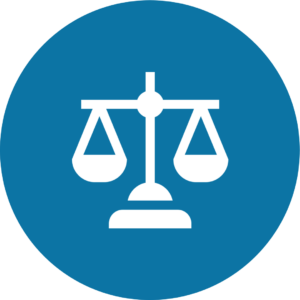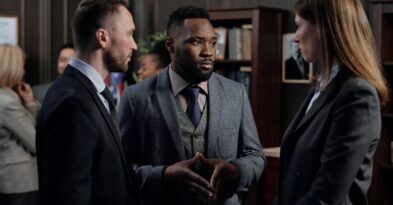A Closer Look at the Moral and Ethical Obligations of Lawyers | Lantana Personal Injury Attorney | Michael Fischetti
When it comes to understanding the moral and ethical obligations of lawyers, Lantana, Florida’s Michael Fischetti has long been an authoritative voice on the topic. He is widely known for his analysis of the ethical standards that guide lawyers in the pursuit of justice. He has brought the Fischetti Law Group to understand the importance of upholding the highest ethical standards in all their legal work. In this blog post, we will explore Michael Fischetti’s views on the moral and ethical obligations of lawyers and consider what we can learn from them.
Law
Defining Legal Ethics
Legal ethics is a set of moral principles that govern the behavior of lawyers and other legal professionals. These principles help to ensure that attorneys act in a manner that upholds the integrity of the legal profession while serving the best interests of their clients.
In the next sections of this blog post, we’ll dive into the key elements of legal ethics that every lawyer should understand. Whether you’re a seasoned attorney or just starting your legal career, these ethical principles will guide you in all your professional endeavors.
The Code of Professional Responsibility
The ethical standards for lawyers are clearly defined in The Code of Professional Responsibility. This set of rules, which is adopted by each state bar association, outlines the ethical obligations of lawyers to their clients, the legal system, and society at large. Florida, for example, has its own version of the Code, known as the Florida Rules of Professional Conduct.
The Code sets out a number of specific guidelines that lawyers must follow, including the duty to maintain client confidentiality, to avoid conflicts of interest, to provide competent representation, to be honest in all their communications, and to avoid discrimination and prejudice.
Perhaps most importantly, the Code emphasizes the duty that lawyers have to uphold the legal system. This means that lawyers are not only responsible for advocating for their clients, but also for ensuring that the justice system functions effectively and fairly. They must be knowledgeable about the law and must be able to competently represent their clients while also working to maintain the integrity of the legal system.
In short, the Code of Professional Responsibility is a crucial component of the legal profession. It sets out the standards of conduct that lawyers must adhere to in order to protect the interests of their clients and to maintain the public’s trust in the legal system. Any lawyer who fails to meet these ethical obligations can face disciplinary action from the bar association and may risk losing their license to practice law. As such, it is essential that lawyers take these ethical standards seriously and always act with integrity and professionalism in their work.
Maintaining Confidentiality
In Florida, the state bar requires lawyers to adhere to strict rules when it comes to maintaining confidentiality. These rules apply not just to conversations with clients, but also to written communications and electronic transmissions. Any unauthorized disclosure of client information can lead to disciplinary action, and even result in disbarment.
Maintaining confidentiality is not just a legal requirement, it is also crucial for building trust with clients. Clients need to feel that they can confide in their lawyer without fear of that information being shared with others. Lawyers who violate this trust risk not just their reputation, but also their ability to practice law.
It is important for lawyers to educate themselves about the nuances of maintaining confidentiality, including the exceptions that may apply in certain situations. For example, lawyers may be required to disclose certain information if it is necessary to prevent harm to others or if they are compelled to do so by a court order.
Avoiding Conflicts of Interest
A conflict of interest can arise when a lawyer’s loyalty to a client is compromised by another interest, such as a personal or financial interest. This can occur in a variety of situations, such as when a lawyer represents multiple clients whose interests are in opposition to one another, or when a lawyer’s personal relationship with a client interferes with their ability to provide impartial advice.
To avoid conflicts of interest, lawyers must be vigilant and take proactive measures to ensure that they are acting in their clients’ best interests. This means avoiding situations in which their judgment may be compromised and disclosing any potential conflicts of interest to their clients in a timely and transparent manner.
It is important to note that conflicts of interest can arise even after a lawyer has taken on a client. In these cases, the lawyer must be diligent in identifying and addressing the conflict as soon as it arises. This may involve seeking the client’s consent to continue representing them despite the conflict or withdrawing from representation altogether.
Providing Competent Representation
Lawyers must possess the knowledge, skills, and experience necessary to handle the legal matter they are undertaking. Clients have the right to expect their lawyer to be competent and knowledgeable in their field of practice. At Fischetti Law Group, clients’ expectations are never let down.
The American Bar Association’s Model Rules of Professional Conduct outline the standards for providing competent representation. These standards require lawyers to keep up to date with the developments in the law, investigate the facts thoroughly, and provide diligent representation to their clients.
Lawyers have a duty to communicate with their clients regularly and effectively, keeping them informed
about the progress of their case and the options available to them. If a lawyer is unable to provide competent representation, they must take steps to either acquire the necessary knowledge and skills or refer the client to another lawyer who can provide competent representation.
Providing competent representation is not just about ethical obligations, but also legal obligations. Clients who have suffered harm as a result of their lawyer’s incompetence may be able to sue for malpractice.
Honesty in all Communications
When lawyers are dishonest, whether it be in written or oral communication, they undermine the integrity of the legal system and compromise the interests of their clients. Lawyers must always present facts accurately, even if those facts are not favorable to their client’s case.
In addition, lawyers must never misrepresent themselves or their credentials. They must be truthful about their experience and expertise and avoid making promises or guarantees that cannot be upheld.
When it comes to communicating with clients, lawyers must provide information that is clear and accurate. They must explain legal concepts in a way that clients can understand and avoid using jargon or technical language that may confuse them.
Honesty in communication also extends to negotiations with opposing parties. Lawyers must not engage in deceitful tactics, such as hiding information or making false statements. They must also avoid using intimidation or coercion to gain an advantage.
Finally, lawyers must be honest in their interactions with the court. They have a duty to present evidence truthfully and to avoid making frivolous or misleading arguments. Lawyers who fail to uphold this duty risk sanctions or other penalties.
Michael Fischetti’ s number one rule in the office is honesty. Without honesty, he believes that lawyers undermine the public’s confidence in the legal system, which can have serious consequences.
Avoiding Discrimination and Prejudice
Michael Fischetti emphasizes the importance of treating every client with dignity and respect, regardless of their race, ethnicity, gender, religion, or any other personal characteristic.
The legal profession is founded on the principle of equal justice under the law, which means that every individual has the right to fair and impartial treatment by the legal system. Discrimination or prejudice by lawyers can compromise this fundamental right and erode public trust in the legal system.
To uphold the ethical standard of avoiding discrimination and prejudice, lawyers must avoid stereotyping or making assumptions about their clients based on their personal characteristics. They should treat all clients equally, without favoritism or bias. Lawyers must also refrain from using offensive language or behavior that could be construed as discriminatory or prejudiced.
Furthermore, lawyers have a duty to challenge discrimination and prejudice wherever they encounter it in the legal profession. This could include advocating for diversity and inclusion in the legal workforce or challenging discriminatory laws and policies that impact their clients.
Lantana Attorney Michael Fischetti
Upholding the Duty to the Legal System
As officers of the court, lawyers have a duty to uphold the law and to ensure that justice is served. At Fischetti Law Group, we take this responsibility very seriously.
One way that we uphold our duty to the legal system is by adhering to the ethical standards set forth by the Florida Bar. This includes always acting in a manner that promotes respect for the law, as well as abstaining from any behavior that might undermine the integrity of the legal system.
In addition to our ethical obligations, we also recognize the importance of maintaining a strong commitment to our community. As active members of the legal profession, we are dedicated to giving back to those who need our help the most. Whether it’s by providing back to school kits for our elementary school students or volunteering our time to organize a food drive, we strive to make a positive impact on the lives of our fellow Lantana citizens.
At Fischetti Law Group, we are proud to uphold our duty to the legal system and to our community. We believe that by doing so, we can help make a difference in the lives of those around us. Whether you need assistance with a legal matter or simply want to learn more about our services, we are here to help. Contact us today at 833-MIKE-247 to schedule a free consultation.
TESTIMONIALS
What People Say
Michael Fischetti embodies all the good in being a lawyer. He is a great attorney and a great person.
10/10 experience with the Fischetti Law Group. Awesome and clearly experienced.













